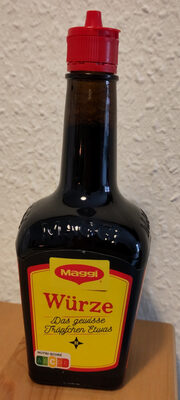
Barcode: 4005500310105
Maggi
HALAL
📝 Reason: Based on the ingredient analysis, most ingredients are Halal. However, ‘flavorings’ and ‘disodium inosinate’ are frequently derived through processes or sources that can be animal-based or uncertain. Per Islamic teachings (Quran 5:3), the doubtful (musbooh) must be avoided without clear Halal certification. IFANCA guidelines support these classifications.
🏷️ Category: Condiments, Food Additives, Flavors
📄 Certificates: Halal, Nutriscore, Nutriscore Grade C, Vegetarisch, Vegan
Ingredients:
Details
Is Maggi Halal? A Comprehensive Look at Its Ingredients
Maggi is a popular choice among consumers for its convenience and flavor. However, as a Halal-conscious consumer, you might wonder about the Halal status of Maggi and its ingredients. This post delves into every component of Maggi to clarify its Halal status.
Understanding Halal Status
The Halal designation indicates that a product meets Islamic dietary laws, ensuring it is permissible for consumption by Muslims. The core ingredient analysis for Maggi reveals that while many components are undoubtedly Halal, others provoke questions due to their ambiguous origins.
Ingredient Analysis
Let’s break down the ingredients of Maggi:
- Plant-based protein, biologically processed (water, wheat protein, salt)
- Water
- Flavorings (with wheat)
- Flavor enhancers (monosodium glutamate, disodium inosinate)
- Salt
- Sugar
The primary ingredients include water and wheat protein, which are both plant-derived and widely recognized as Halal unless cross-contaminated.
Water is inherently Halal, as it is pure and safe for all consumption.
The term ‘flavorings’ is vague, which raises potential concerns as it can be derived from either plant or animal sources. Without a clear source, such flavorings are classified as doubtful regarding their Halal status. It is prudent to seek products with verified Halal listings for these types of ingredients.
Monosodium glutamate (MSG) is widely accepted as Halal; however, disodium inosinate often presents challenges as it can be animal-derived. The absence of specific source information leads to its classification as doubtful, necessitating caution.
Common salt, sodium chloride, is universally accepted as Halal.
Sugar is generally Halal unless processed with non-Halal animal bone char. No such processing is indicated in Maggi’s description.
E-Numbers and Their Halal Status
In the context of E-numbers, the following insights are vital:
- Plant-based protein: Halal status confirmed (natural plant sources).
- Water: Halal by default.
- Flavorings: Status is doubtful due to undefined origins.
- Flavor enhancers (MSG and disodium inosinate): MSG is generally Halal; disodium inosinate is listed as doubtful due to potential animal sources.
- Salt and Sugar: Both are acceptable, with no Halal concerns.
Brand and Certificate Context
Maggi falls under the category of condiments, food additives, and flavors. It holds a Halal certification, indicating that it has undergone thorough scrutiny to meet the dietary laws set forth by Islamic teachings. Additionally, Maggi carries certifications like Nutriscore and Vegan, appealing to a broader range of health-conscious consumers.
Conclusion: Is Maggi The Right Choice for You?
In conclusion, while Maggi contains several ingredients that are Halal, the included flavorings and disodium inosinate prompt a cautious approach for Halal-conscious consumers. For those strictly adhering to Halal dietary guidelines, it’s essential to weigh the ambiguous components. Always look for verified Halal products to ensure compliance with your dietary practices.
By understanding the ingredients and their origins, consumers can make informed choices about products like Maggi. If you have any further questions regarding Halal status or ingredients, feel free to consult trusted Halal certification bodies.
